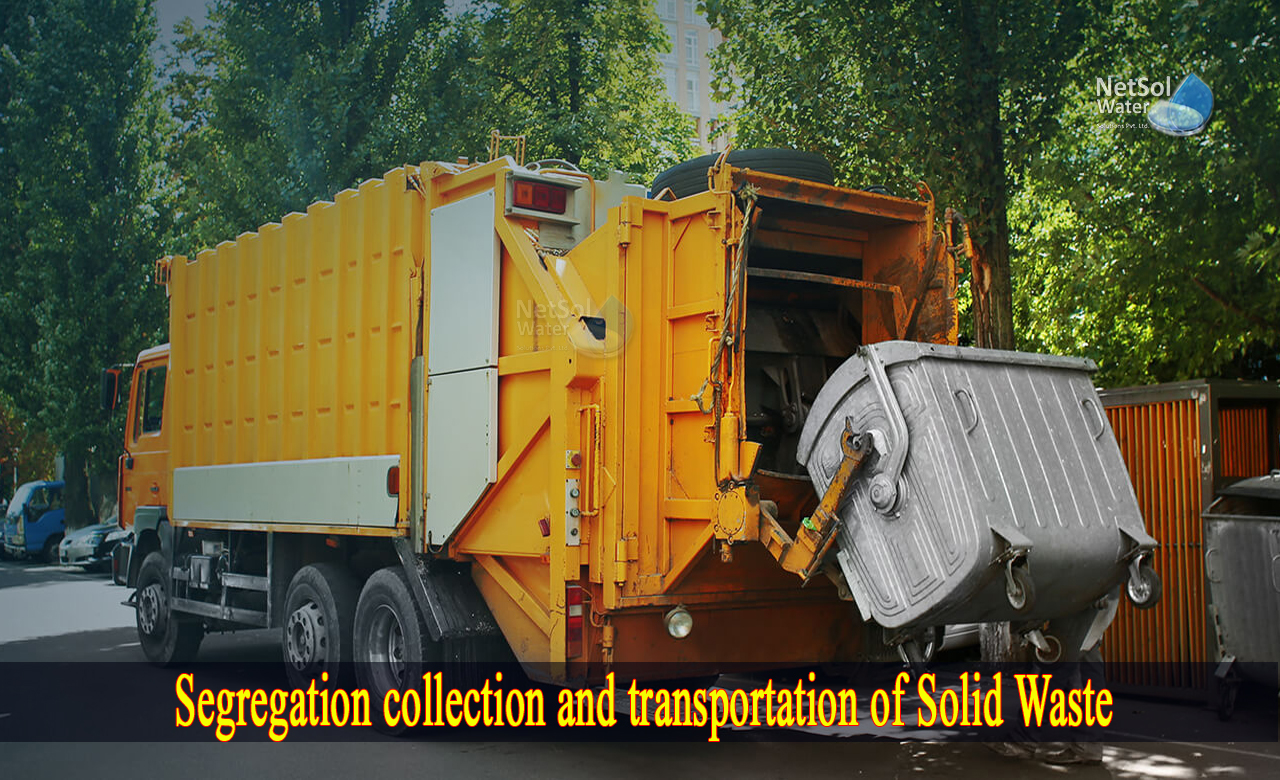How to Segregation collection and transportation of Solid Waste?
Municipal Solid Waste (MSW) should be held at the point of generation until it is collected by urban local body workers or appointed contractors for disposal. Waste must be separated into different fractions referred to as primary segregation. The segregation must be linked to primary waste collection from the streets.
The waste fractions into which it must be sorted in detail should be based on waste characterisation, urban local body capacity and facilities, and other framework factors (existing kabadi systems, community traditions, available space in residential areas and in streets, and so on).
Waste Segregation types: The three bin system
Waste should be segregated into three divisions by waste generators at a minimum, referred to as basic segregation:
1: Wet (green container),
2: Dry (white container), and
3: Hazardous waste.
It is known as the three-bin system. Segregated collection of wet and dry waste increases the potential for cost-effective waste treatment and maximizes the value of recyclable materials put into the system.
>Horticulture waste, building and demolition waste and sanitary waste should be stored and collected apart from these wastes.
>The moist fraction should preferably be composted and the dry material should be delivered for recycling.
>Sanitary waste should also be packed securely, collected, and given over separately to waste collectors.
>Domestic hazardous garbage should also be collected separately and placed at authorised disposal sites.
Municipal Solid Waste transportation and collection
SWM requires the collection of segregated municipal waste at the source. Inefficient waste collection has a negative influence on public health and city beauty.
There are two types of waste collection services: primary and secondary.
1: Primary collection is the process of collecting waste from homes, markets, institutions, and other business entities and transporting it to a storage depot, transfer station, or disposal site, depending on the size of the city and the waste management system in place. It must be implemented in both small and large cities.
2: Secondary collection involves collecting waste from community bins, waste storage depots, and transfer stations and transporting it to waste processing facilities or final disposal facilities. These systems are required in all cities and towns for sanitation.
To avoid overflowing containers and waste littering on the streets, a well-synchronized primary and secondary collection and transportation system is required. Furthermore, the transport vehicle should not only be capable of transporting segregated waste, but also be compatible with the waste storage depot's equipment design to avoid multiple waste processing.
You have to keep in mind the following for proper solid waste management:
• The amount and percentage of waste processed, the technology used, the percentage of residual garbage transferred to a landfill, the money generated by the processing plant and the recipients of the revenue;
• Does the city have a sanitary landfill? If yes, describe the area, designated site, and capacity of the landfill, as well as the volume of the present cell and its estimated life, and the amount of garbage deposited annually at the landfill,
• Land availability for MSWM in accordance with the city's development plan or master plan.
Netsol Water works closely with the local community and other waste providers. Because of the large number of institutions and stakeholders engaged in MSWM, it is critical that the plan, which attempts to close gaps or improve service quality, be established through a consultation approach. The opinions of stakeholders, including their desire to engage and pay for the service, should be taken into account. We have over 10 years of experience custom-designing and manufacturing wastewater treatment plants, water treatment plants, SWM systems, among other services.



